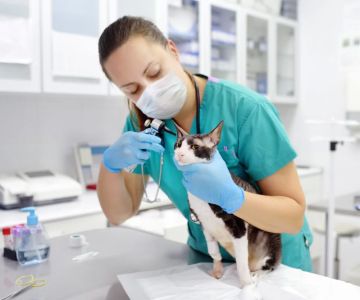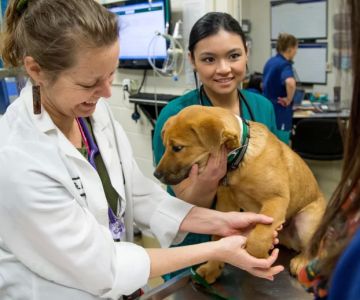Education and Prerequisites
To understand how to become veterinarian in Canada, you must first meet specific educational prerequisites. Most Canadian veterinary schools require a bachelor’s degree in biological sciences, chemistry, or a related field. Courses such as animal physiology, biochemistry, and genetics build the foundational knowledge essential for success in veterinary medicine.
Undergraduate GPA and Relevant Experience
A competitive GPA—typically above 3.5 on a 4.0 scale—is crucial. Beyond grades, admissions committees value hands-on animal experience: volunteering at shelters, shadowing licensed veterinarians, or assisting in research labs. Highlighting these experiences demonstrates commitment and practical understanding.
Personal Insight and Reflection
Reflect on your motivations in personal statements. Authentic stories—perhaps the time you nursed a stray kitten back to health—resonate more than generic ambitions. This genuine voice sets you apart and underscores your dedication to animal care.
Veterinary School Admission Process
Canadian veterinary education spans four years of intensive study. Institutions like the University of Guelph and Université de Montréal evaluate applicants via the Canadian Veterinary Medical Association’s online application system (CVMA CAS). Deadlines often fall in January, so prepare early.
Entrance Examinations and Interviews
Some schools require the Graduate Record Examination (GRE) or institutional equivalents. After academic review, selected candidates attend panel interviews assessing ethical reasoning, communication skills, and teamwork. Practice with mock interviews to refine responses.
Financial Planning and Scholarships
Tuition ranges from CAD 20,000 to CAD 30,000 per year. Explore scholarships, bursaries, and government loans. Early budget planning prevents financial stress during your veterinary journey.
Clinical Training and NAVLE Licensing
Clinical rotations in small animal, large animal, and exotic medicine occupy the latter half of veterinary studies. Immersion in real-world cases under faculty supervision hones diagnostic and surgical skills—key phases in your path to learn how to become veterinarian in Canada.
North American Veterinary Licensing Examination (NAVLE)
Upon graduation, passing the NAVLE is mandatory. This standardized exam tests clinical competencies through multiple‐choice questions focused on disease management, preventive care, and public health. High-quality prep resources—review courses, question banks, and study groups—boost your confidence and scores.
Provincial Registration Requirements
After NAVLE success, register with your provincial veterinary regulatory body (e.g., Ontario Veterinary College for Ontario). Requirements include jurisprudence exams and proof of liability insurance. Completing these steps grants legal authority to practice.
Gaining Experience and Specialization
Early-career veterinarians often join mixed or companion-animal practices to refine soft skills: client communication, time management, and business acumen. Many pursue internships or mentorships in specialty clinics—cardiology, orthopedics, or emergency care—to deepen expertise.
Residency and Board Certification
For advanced specialization, residency programs lasting three to four years lead to board certification through the American or European colleges. While demanding, these credentials command higher salaries and attract challenging cases.
Continuous Professional Development
Maintain competence through workshops, webinars, and conferences. Subscribing to journals and joining associations (e.g., Canadian Veterinary Medical Association) ensures you stay at the forefront of veterinary innovations.
Launching Your Veterinary Career and Resources
Entering practice marks the culmination of your journey to understand how to become veterinarian in Canada. To accelerate success, invest in targeted resources: online prep courses for NAVLE, mentorship platforms, and practice-management software. These tools streamline workflows and enhance patient care.
Recommended Educational Products
Our comprehensive Canadian Vet Career Accelerator package includes video lectures, practice exams, and personalized coaching. Users report a 20% improvement in exam readiness and smoother transitions into clinical roles.
Next Steps and Enrollment
Ready to take the next step? Secure your spot in the Canadian Vet Career Accelerator today and transform your aspiration of becoming a veterinarian in Canada into a rewarding profession.











